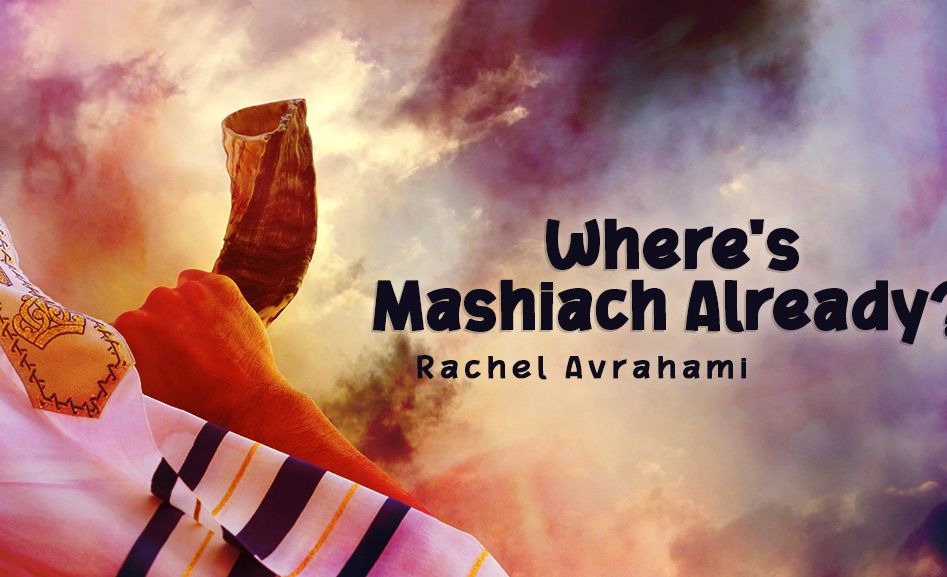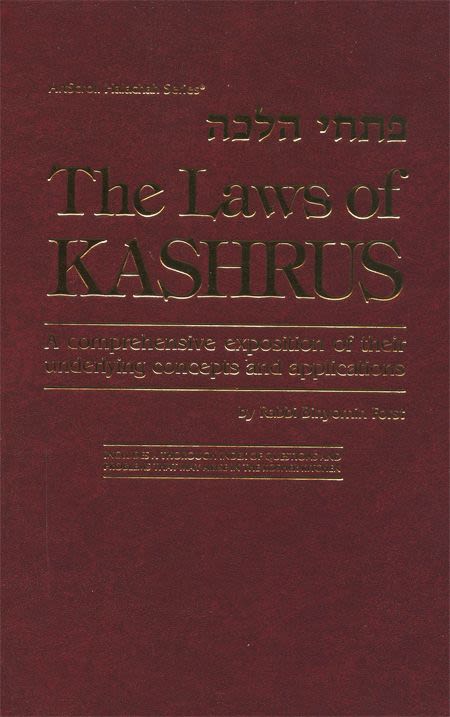
A Taste of Mashiach
This week is Thanksgiving in the USA; even though we don't eat turkey every day, in Judaism, every single day is Thanksgiving and a taste of the World to Come...

I had the opportunity to read “Perek Shira”, or “Song of the Universe.” To say that it is a beautiful and deep spiritual work of art would be an understatement. Anyone who reads this work with an open heart is shaken to the very core with love and awe of Hashem’s miraculous creations and wonders. It is recommended to read every day, and many great spiritual leaders promise that the person who does so merits many great blessings in the World to Come. I’m still trying to improve on the once a month part. One day I’ll get there, G-d willing.
Anyhow, in the introduction, a great lesson in spiritual awareness is taught. Rav Shalom Arush and Rav Lazer Brody have repeatedly given over this same lesson, and it should be known that this understanding is one of the spiritual foundations that will exist after Mashiach arrives. The teaching is as follows: during the Messianic Era, there will still be tragedies of all types occurring. The main difference between now and then will be how we perceive those tragedies.
 Now, when something happens that goes against what we perceive to be good, we say, “Baruch Dayan HaEmet,” Blessed is the True Judge. This is because, with our severely limited spiritual eyesight, we cannot possibly see the big picture in Hashem’s plan. We cannot understand with our five senses how such painful experiences will ultimately benefit us and are truly good.
Now, when something happens that goes against what we perceive to be good, we say, “Baruch Dayan HaEmet,” Blessed is the True Judge. This is because, with our severely limited spiritual eyesight, we cannot possibly see the big picture in Hashem’s plan. We cannot understand with our five senses how such painful experiences will ultimately benefit us and are truly good.
In the future, we will clearly and immediately see how a person’s suffering are truly what is best for him, and we will thus make the blessing, “Baruch HaTov VeHaMetiv,” Blessed is He Who is Good and does good.
This exact point is what makes Rav Arush’s teachings literally life-saving. He has taken Rebbe Nachman’s ingenious spiritual insight and made it practical and applicable for every person, no matter what spiritual level he is on. Rebbe Nachman was the first one to champion personal prayer, and he explained that this is what solidifies our connection with Hashem.
Rav Arush has included within this master recipe for success the main ingredient, which is gratitude. Gratitude is the key to happiness in life. If a person works on being thankful for everything in his life, an amazing domino effect happens. The more he is thankful, the more things he will find to be thankful for! And the cycle is never-ending.
Why is it so important to be thankful for everything? Aside from the obvious reason that if a person is not thankful, he becomes arrogant and feels that he is entitled to everything, there is another reason: Gratitude is a taste of Mashiach!
Rav Arush is telling us, “You don’t need to wait until after Mashiach comes to say that Hashem is good and does good! You can have a taste of the World to Come right now! With emuna, the faith that everything is from Hashem and is for your best, you can go through anything and still have a smile on your face!”
It’s so easy to get sad or angry when things don’t go the way we want them to. What if we really understood that the way we want things isn’t always what’s best for us? Wouldn’t we be so much happier, knowing that whatever challenges we’re facing are exactly what we need?
One of Rebbe Nachman’s stories, as told to me by Rav Brody, wonderfully illustrates this point, among many others. One day, Rebbe Nachman decided to go to a certain city. Reb Chaikel, his gabbai, came along with him. Along the journey, Rebbe Nachman seemed to be asleep, so Reb Chaikel decided to ask the wagon driver to take another route. Rebbe Nachman saw what he was doing, but didn’t let on that he was actually awake. Eventually, they arrived at Reb Chaikel’s cousin’s house, which looked like the epitome of poverty. After entering the dirt shack, it was soon made obvious that there was no food or drink to offer the holy guests. Reb Chaikel hoped that Rebbe Nachman would see the dire straits his cousin was in, and give him a blessing for sustenance as a result.
After much prodding, Rebbe Nachman declined, saying he had no sustenance to give to the cousin. Instead, he told Reb Chaikel to give him the blessing, if that is what he wished. He did just that, and within several minutes, the blessing started to manifest. Two burly Cossacks barged into the shack and demanded liquor. After finding out there was nothing to offer, they gave Reb Chaikel’s cousin some money to buy liquor for them.
Within a very short while, the cousin’s fortune turned and he was rich. He wasn’t just rich; he was incredibly busy, trying to balance all of his business. He was constantly running from his house to the town square and back. Rebbe Nachman’s study happened to be overlooking the town square, so he frequently saw Reb Chaikel’s cousin running around. In the beginning, the cousin stopped to pay his respects to Rebbe Nachman, but eventually he stopped doing that.
One day, Rebbe Nachman called the cousin into his study. “Chaikel’s cousin,” he said, “Did you daven today? Did you put on tefillin today?” He already knew the answers to those questions, but he wanted to make Reb Chaikel and his cousin realize something. “Before, he was a kosher, G-d fearing Jew,” he told Reb Chaikel. Rebbe Nachman then turned to the cousin and asked, “Did you look up at the sky today?” The cousin bowed his head in shame…
Yes, the cousin was suffering in an impoverished state. No one said that soul corrections had to be easy. However, his suffering was enabling him to earn an eternity of spiritual bliss. Hashem knew that the only way for him to remain a kosher Jew was to put him in such circumstances. Hashem knew that if he were given wealth, the temptation would overwhelm him, and he wouldn’t be able to live a kosher life. His observance would fall by the wayside, and he would be consumed with making money.
Granted, such a high level of spiritual awareness is very difficult to accomplish. But, it’s not impossible! In fact, it’s easier than you think to have a taste of Mashiach. You can do it with just two simple words: “Thank You.” Thank Hashem for everything! Start out with the easy things, and then work on the more difficult things.
If you haven’t yet read The Garden of Gratitude, don’t wait another minute! When I read this book, I said to myself, “If this book doesn’t bring Moshiach, I don’t know what will!” For the times you can’t read, listen to Rabbi Arush’s phenomenal CD, said over in English by Rabbi Brody, “Learn to Say Thank You.” I promise that if you apply this simple yet profound principle of gratitude into your life, you will see endless blessings from it!
May we all merit to see the good in everything, and not have to wait until after Mashiach comes, Amen!











Tell us what you think!
Thank you for your comment!
It will be published after approval by the Editor.